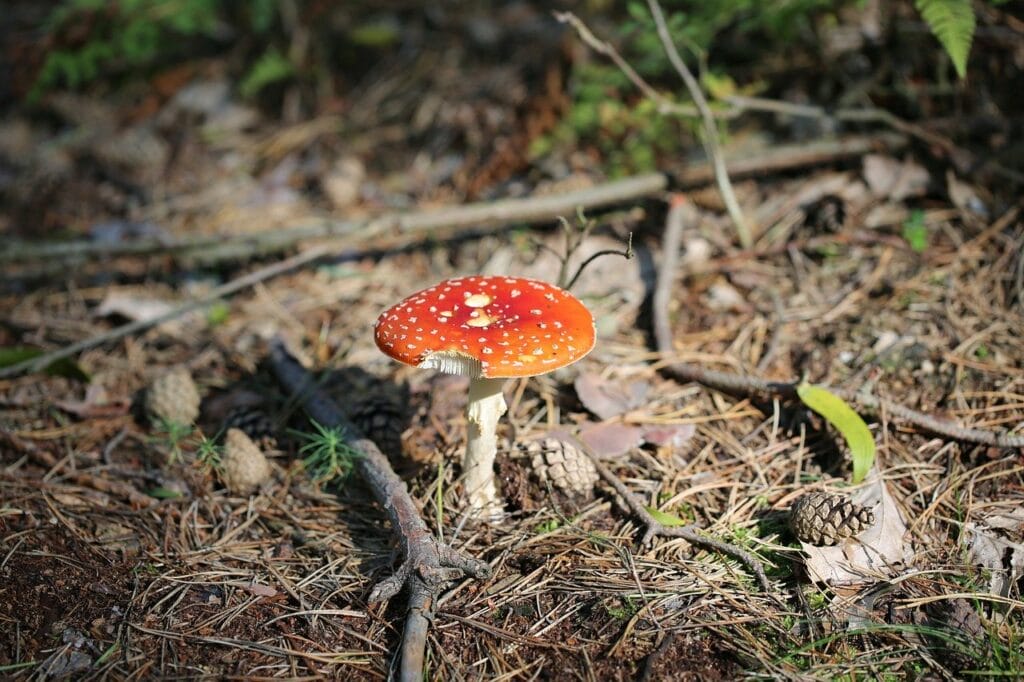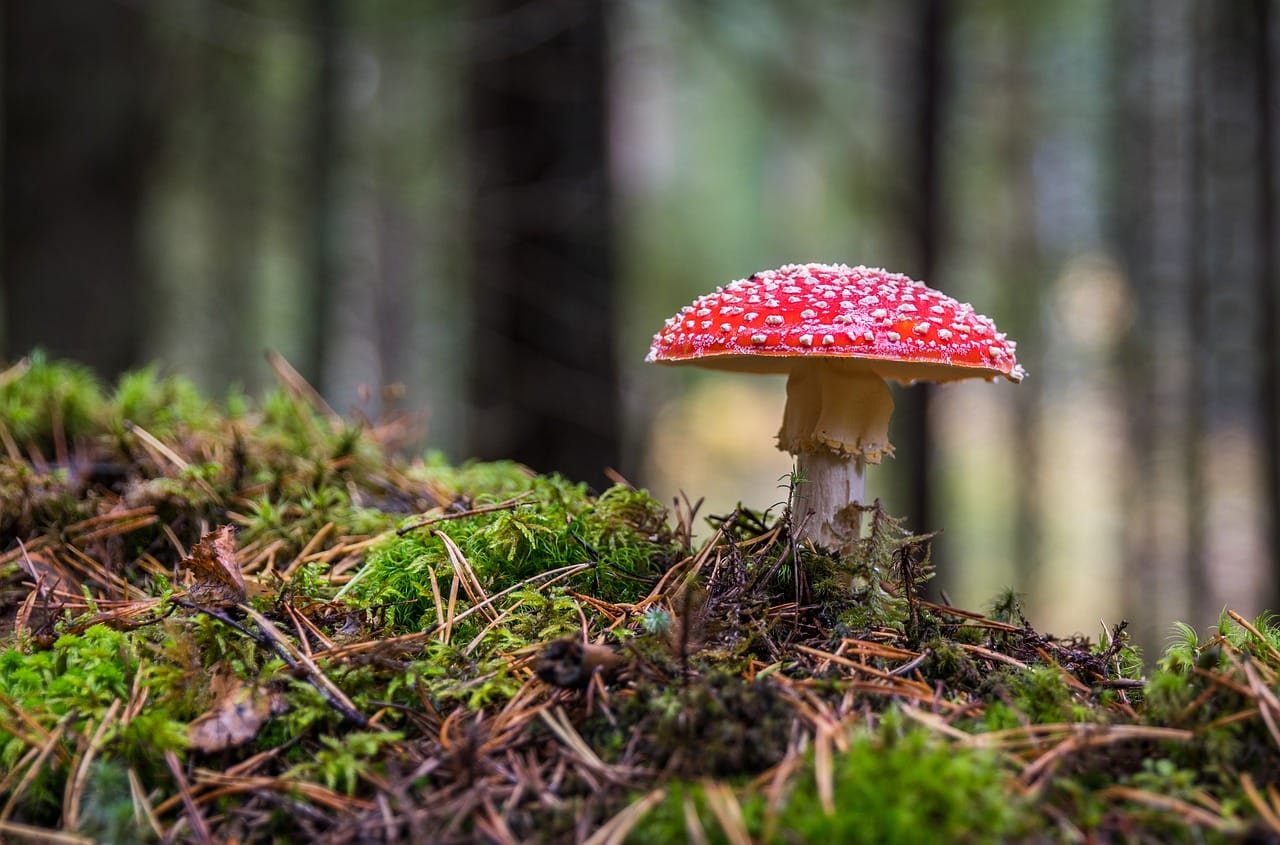Throughout history, humans have identified and purposefully utilized the psychedelic properties of certain plants and fungi.
Of these, fungi, specifically magic mushrooms, are acknowledged as the primary natural source of psychedelic substances.
Psilocybin, a psychedelic substance derived from mushrooms, holds a notable position in history due to its use in religious ceremonies and therapeutic treatments.
A number of researchers are devoting their resources to explore the potential health benefits of shrooms online. Current research has shed light on the effects of psilocybin mushrooms. These findings provide hope to many, highlighting the need for a debate on their inclusion in Canada’s healthcare system.
Key Points:
- Magic mushrooms, which contain the psychoactive compound psilocybin, can play a crucial role in addressing mental health challenges in Canada.
- Psilocybin, unlike opioids, is safer and carries a lesser risk of addiction and toxicity.
- Psilocybin demonstrates long-term efficacy in treating depression, with effects that can persist up to a year.

Getting to Know Psilocybin
Psilocybin, an indole-alkylamine (tryptamine) derived from magic mushrooms, shares structural similarities with lysergic acid diethylamide (LSD). Its effects such as hallucinatory and euphoric episodes are likely due to its interaction with serotonin (5-HT) receptors in the central nervous system.
Considering its interaction with serotonin receptors, high-quality magic mushrooms have a unique ability to aid in the management of mental health conditions.
Addressing Mental Health and Opioid Crisis in Canada
Prevalence of Mental Health Disorders in Canada & Treatment Resistance
| 2012 | 2022 | |
| Major Depressive Episodes | 4.7% | 7.6% |
| Generalized anxiety disorder | 2.6% | 5.2% |
| Social phobia | 3.0% | 7.1% |
| Alcohol use disorder | 3.2% | 2.2% |
A significant portion, approximately 36.6%, of individuals dealing with mood, anxiety, or substance use disorders have reported unfulfilled or insufficiently addressed healthcare and mental health needs.
An investigative article from the Canadian Journal of Psychiatry sheds light on the attitudes of depression patients towards seeking treatment. This study analyzed 1282 patient records from 135 physicians, identifying 263 patients with treatment-resistant depression (TRD). This translates to a prevalence rate of 21.7% across Canada.
Opioid Crisis
An estimated 8 million Canadians, or one in five, are living with chronic pain. If not managed effectively, pain can negatively influence several aspects of a person’s life.
Medical practitioners often suggest the use of opioids for managing pain. While opioids can relieve pain and enhance functionality, they also carry potential risks.
Between January 2016 and March 2022, at least 30,843 deaths related to opioid toxicity were reported in Canada. The early part of 2021 saw the highest number of these tragic occurrences, with a staggering 5,368 cases. Notably, over 88% of these incidents took place in the provinces of British Columbia, Ontario, and Alberta.
For Major Depressive Episodes
In research published in the Journal of Psychopharmacology, 27 individuals with a prolonged history of depression were chosen. Most of these individuals had been dealing with depressive symptoms for around two years before joining the study. 88% of these individuals had previously received treatment with traditional antidepressants, with 58% reporting the ongoing use of such medications during their depressive episodes.
The study found significant reductions in depression after psilocybin treatment for both groups. The researchers also noted that the severity of depression remained consistently low at one, three, six, and 12 months after treatment.
For General Anxiety and Social Phobia
A case study published in the Croatian Medical Journal in October 2021 examined HTML:
The story centers around a
A solitary 16-year-old boy sought help from a mental health clinic due to his inclination for isolation, severe anxiety, and deteriorating academic performance. A learning disability and a lack of motivation further complicated his struggles, making group therapy an overwhelming and ineffective experience for him.
Substantial positive changes were noted after the teenager underwent three psilocybin sessions over a period of 18 months. His anxiety lessened, and his communication skills with peers and teachers enhanced. He started expressing his emotions transparently, became an active participant in group therapy, and noticed improved interpersonal relationships.
Treatment for Alcohol Use Disorder
A recent clinical trial, detailed in a study published in JAMA Psychiatry on August 24, revealed the potential of using a combination of psilocybin and psychotherapy to treat alcohol use disorder. The progress of 93 patients with the disorder was monitored for a period of 32 weeks.
Impressively, there was an 83% drop in alcohol consumption among those who went through psilocybin-assisted therapy (48 individuals), within eight months of their initial dose. This was in contrast to a 51% reduction in the placebo group. Almost half of the psilocybin group stopped consuming alcohol completely.
Addressing the Opioid Crisis
Elena Argento, a postdoctoral fellow at the University of British Columbia and BC Centre on Substance Use, is investigating the therapeutic use of psychedelics.
Argento explains that psilocybin functions in two ways to mitigate addiction risks: it impacts both neurobiology and psychology. She underscores the transformational experiences psychedelics can trigger, characterized by a profound sense of awe and self-transcendence. These experiences often enable individuals to discover new meanings and objectives in life, potentially leading to behavioral changes, especially concerning addiction.
In a recent longitudinal study spearheaded by Argento and the BC Centre on Substance Use, they found a significant decrease in the likelihood of continued daily illicit opioid use among participants who had used psychedelics recently or within the past six months.
Argento’s 2018 study also indicated that psychedelic use could act as a protective factor against the link between prescription opioid use and suicide risk.
Another study found links between psilocybin use and a reduced risk of opioid use disorder. This prior research suggested a 40% decreased risk of opioid misuse and a 27% reduction in the risk associated with opioid dependence over the over the past year as a result of psychedelic consumption.
Health Canada and Other Regulatory Bodies Should Consider Psilocybin as Part of Canada’s Therapeutic Approach
Despite the recognized potential of Psilocybin to positively influence Canadians’ mental health, its accessibility remains a challenge. Health Canada authorizes healthcare professionals to prescribe this treatment via the Special Access Program. However, the stringent rules of the program constitute a significant barrier for many professionals and patients.
The therapeutic use of psilocybin-containing mushrooms could revolutionize mental health care in Canada, providing potentially transformative benefits. Rather than relying on traditional, and frequently less effective, treatments like pharmaceuticals or opioid replacement therapy, psilocybin therapy offers an alternative with potential for lasting, significant effects.
Research suggests that psilocybin therapy could offer enduring benefits, possibly saving patients substantial costs on ineffective treatments. Furthermore, research indicates that psilocybin is relatively safe, with low toxicity, minimal risk of misuse, and infrequent overdose incidents.
How Can One Purchase Psilocybin Online?
If Canadians find accessing psilocybin therapy challenging, they can opt to purchase magic mushrooms online to help with their current situations. They can explore a wide range of magic mushroom products, from high-dose shrooms to magic mushrooms in microdoses.
High-dose shrooms include psychedelic mushrooms available in various forms, such as dried magic mushrooms, edibles, or beverages, which are taken for their hallucinogenic and therapeutic effects.
Microdosing magic mushrooms involves products that contain small amounts of magic mushrooms. These products are available in capsules, shroom edibles, or shroom tea. Buying shrooms online provides an alternative way to subtly experience these mushrooms’ benefits. Magic Mushroom Delivery Canada exclusively sells top-quality magic mushrooms online, ensuring the best quality.
Is Psilocybin a Viable Option for Canadian Healthcare?
Psilocybin is often misunderstood due to its recreational use. It’s essential to note that psilocybin has a safer profile compared to opioids and other commonly prescribed drugs in healthcare settings.
There is a growing body of evidence suggesting its potential benefits, similar to those of marijuana, in treating various mental health conditions. dimensions of reality.
Magic mushrooms have historically been utilized in the realm of wellness to bolster mental health therapies and foster individual development.
What could be the potential dangers and side effects of magic mushrooms?
The influence of magic mushrooms can be twofold, yielding both positive and negative outcomes. They can give rise to hallucinations, altered awareness, and mental shifts. On the flip side, they may lead to discomforts like nausea, instability, and on rare occasions, psychological turmoil. It’s crucial to undertake mushroom consumption with carefulness and reverence, being aware of the possible hazards. It’s always prudent to seek advice from a health care specialist before incorporating magic mushrooms into any new regimen.
Is purchasing magic mushrooms online safe?
The safety of buying magic mushrooms on the internet hinges on the credibility of the source. It’s vital to perform an exhaustive investigation into the product, brand, and the online outlet before finalizing any purchase. Client feedback and ratings can serve as vital signs of product excellence and the trustworthiness of the service. Always opt for outlets that put customer safety and satisfaction first and provide secure payment methods.
Is it feasible to cultivate my own magic mushrooms?
Yes, you can indeed grow magic mushrooms at your residence, and it can be a rewarding endeavor. Nevertheless, it demands certain conditions and a thorough comprehension of the cultivation methods. A wealth of kits and manuals can be found online to aid you in your mushroom cultivation journey. However, bear in mind that the legality of mushroom cultivation can vary by jurisdiction, so it’s crucial to comply with your local regulations and laws.
In the wellness domain, some people opt for a more measured approach, consuming smaller quantities of mushrooms to harness their benefits without inducing hallucinations.
Related Articles You Might Find Interesting:





